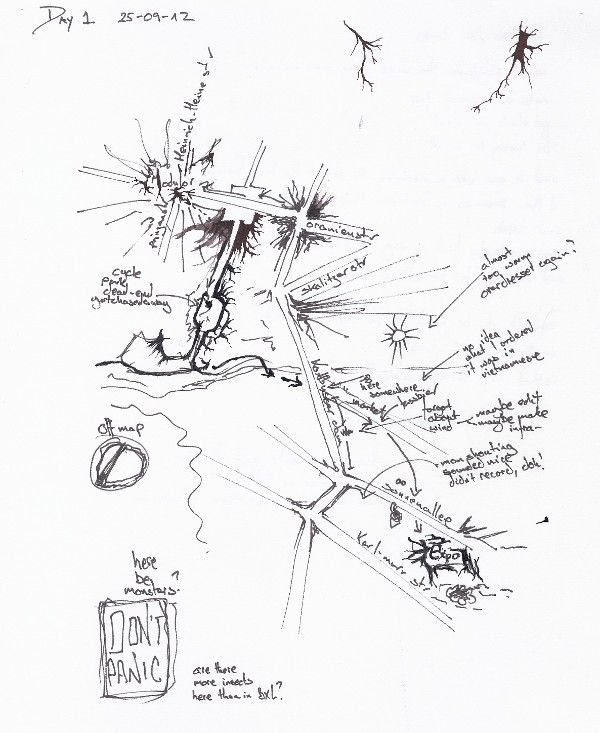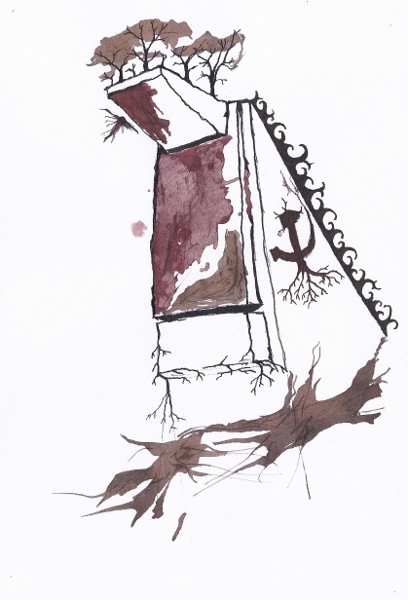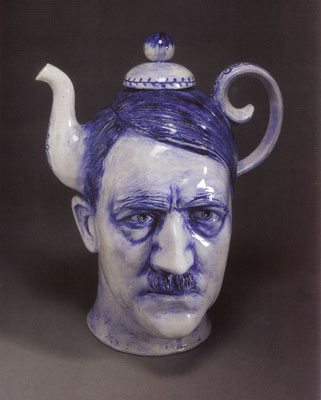A live perfomance by Chris Farmer in the Radio Panik studio, based on a previous work he did a few months ago for a german galery (Expo Berlin). The work he did in Berlin resulted in an improvised performance which was an electronic, harmonic and visual echo of the surrounding urban space.
In Brussels, Chris farmer proposed to the Radio Panik listeners to recreate the poetic and harmonic experience of that particular urban landscape, which he recorded and translated with his sound recorder and coloured pencils.
**
Living and working in Brussels, Belgium, Chris Famer is of vaguely British origin and a self-taught gardener, linguist, musician and artist who composes and improvises in all of these media. Since the early 1990s, he has gardened, translated and created his way through France, Belgium and the UK.
His quest is to find poetry in noise and the botany of language, hoping to one day compile a formally chaotic and above all subjective monograph of the world that confronts him, and us, every day.
Since an early age, Chris Farmer has been influenced, or obsessed, by song and sound, and especially how it can be transformed or dismantled, as seen in the works of Anthony Milton, Michael Gira, Richard Skelton.
He currently experiments with the relation between languages, culture, sound, structure, horticulture and art, in various random combinations.

Chris Farmer’s website.
Chris Farmer’s mixcloud.
Chris Farmer’s soundcloud.
Berlin In Art’s blog about the performance in Berlin
Expo-Berlin galery
Chris Farmer pour une performance en live dans les studios de Radio Panik.
À l’origine de sa proposition, une invitation de la galerie allemande Expo-Berlin qui avait donné lieu à une écoute aux casques d’une composition, improvisée en live, résonance sonore, visuelle, électronique et harmonique de ce que lui a inspiré l’espace urbain berlinois au cours de ses déambulations.
À Bruxelles, et en studio, ce jeudi 13 décembre, Chris Farmer propose aux auditeurs de Radia de retrouver et de recréer la poésie et l’harmonie surgies de ce paysage urbain que son enregistreur et ses crayons de couleurs s’étaient amusés à traduire.
À propos de Chris Farmer :
Installé à Bruxelles depuis 3 ans, Chris Farmer est un autodidacte protéiforme : jardinier, linguiste, musicien et artiste, il compose et improvise à partir de ces différentes sémantiques. Depuis le début des années 90, il jardine, traduit et créée ainsi son chemin à travers la France, la Belgique et la Grande-Bretagne.
Faire émerger la poésie du bruit et la botanique du langage constitue une constante dans sa démarche qui vise l’espoir d’un jour, parvenir à recenser en une monographie, formellement chaotique, et par dessus-tout, subjective, notre rapport au monde.
Chris Farmer est influencé, sinon obsédé, par la chanson et le son, en particulier par la manière dont ils peuvent être déformés et démantelés, à l’instar des travaux d’Anthony Milton, Michael Gira et Richard Skelton.
Il expérimente actuellement les variations aléatoires qui peuvent résulter de la relation entre les languages, la culture, le son, la structure, l’horticulture et l’art.





